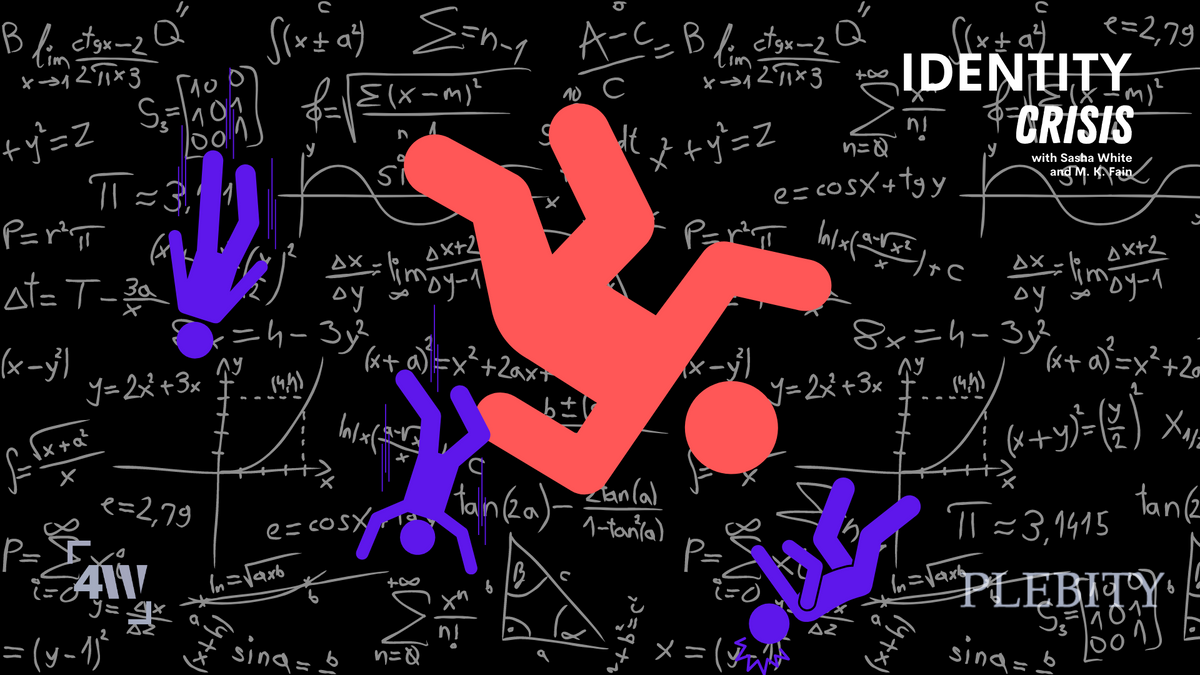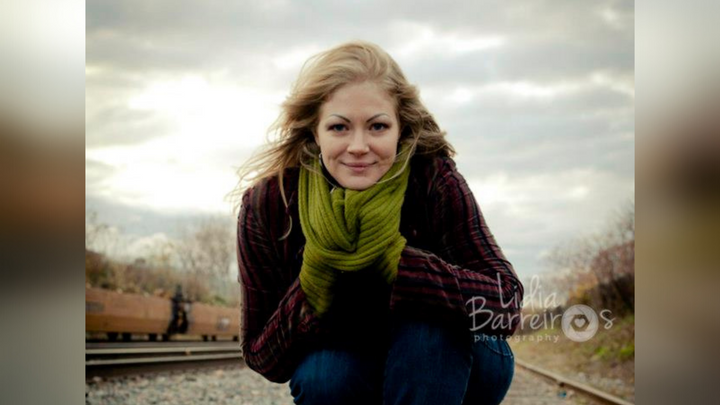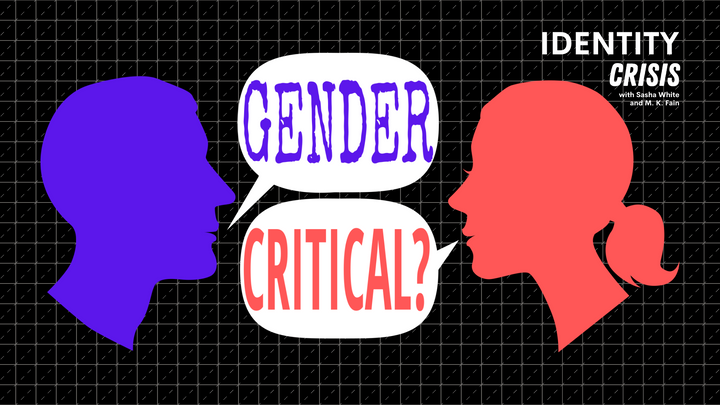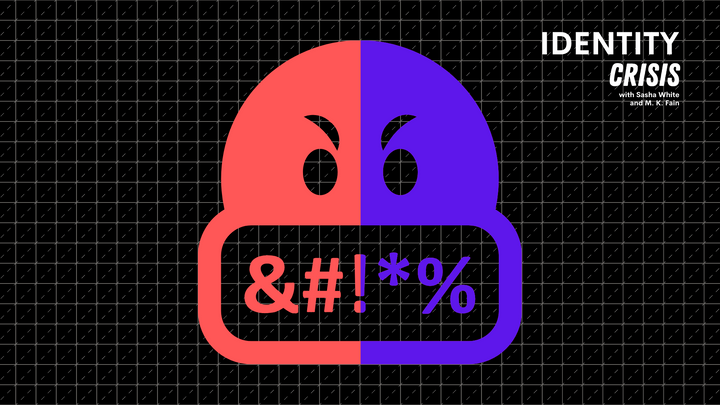Identity Crisis: How to Question Everything Without Going Crazy
Once you open your mind to one new idea, it's easy to fall down the rabbit hole

"Identity Crisis" is a new weekly column and podcast for young people struggling with the modern orthodoxy of gender identity ideology—developed in collaboration between Plebity and 4W by M. K. Fain and Sasha White. Each week, we will answer one or two of your questions, both as a running column here on 4W, and in the form of a video on YouTube.
To submit a question, email us at: [email protected]. We may publish your question in full, so be sure to leave out or change any identifying details if you would like to remain anonymous. Or, specify that your question is private and you would rather we discuss it in a general way.
"Don't be so open minded your brain falls out!"
― My dad, and probably your dad too
Every so often, something happens in our lives that causes a seismic shift in our thinking. An experience or a new piece of information comes along that is so big it makes us question the very fundamentals of society. In a single moment, the invisible forces that shape our world, pulling the strings silently from above, are made clear. The world snaps into focus like never before. Perhaps for the first time, you start to question everything.
For many people reading this, that may have been your "peak trans" moment – or, the moment you first seriously questioned gender identity ideology (learn more about my "peak trans" moment on our first Episode of Identity Crisis!).
For me, though, the catalyst to opening my mind came earlier – when I first got into animal rights and decided to go vegan.
Becoming vegan was a massive mindset shift for me. Since childhood, I had lived in a constant state of cognitive dissonance around my treatment of animals. On one hand, I considered myself an animal lover. The idea of animal abuse was sickening to me, and I knew I would never be able to bring myself to hurt, let along kill, an innocent animal for food. If I ever remembered that the food I was eating was the body of a dead animal, I lost my appetite. I tried to push the thought out of my mind for as long as I could.
Cognitive Dissonance occurs when a person holds contradictory beliefs, ideas, or values, and is typically experienced as psychological stress when they participate in an action that goes against one or more of them.
Confronting this cognitive dissonance was an active choice for me. I had put it off through college, telling myself that I would figure it out when I was on my own and had more control over my finances and food choices. When I finally graduated, was out on my own, working my first job, and buying my own groceries, I decided the time had come for me to confront the contradiction. I looked up slaughter house videos, learned about the animal agriculture industry, and committed to never eating meat again.
For me, this was the moment I began questioning everything.
I noticed the way society brainwashed young children to ignore their empathy for other animals. I realized the government subsidies happening behind the scenes that kept meat and dairy cheap against the forces of the free market. I discovered the environmental impact of animal agriculture, and the lengths mainstream green organizations take to avoid confronting this issue. I learned about Ag Gag laws, which unconstitutionally stifle free speech of activists trying to hold animal agriculture to account.
The oppression of non-human animals in our society runs so deep, and is so fundamental to our culture, that "going vegan" didn't just mean changing my diet. It meant changing the entire way I see the world. I stopped trusting the government. I stopped trusting corporations. I stopped trusting everyone. I had been literally fed a lie, and there was no going back once my eyes were open. I started to wonder what else I had been lied to about.
This experience is pretty common among the vegans I know. Sometimes, it leads to becoming a more critical thinker. Many of my animal rights friends are the most interesting, logical people I know.
But sometimes, people who undergo these experiences of "awakening" on one issue fall down a rabbit hole of radicalization – taking the idea of "question everything" to an extreme as they lose touch with reality. Among vegans, I've often seen a tendency towards questioning medical science, such as anti-vaxxers and proponents of unproven treatments. In the most extreme cases, I have watched vegans become "flat Earthers," believing that the Earth is a flat circle, gravity is a lie, space is a government conspiracy, and NASA is basically the root of all evil.
In the gender critical community, we have our own versions of this.
For people who come to radical feminism or gender critical beliefs from the left, especially, questioning gender identity can cause cognitive dissonance about your own identity. You considered yourself a leftist, a liberal, a progressive, etc... but, suddenly, you are at odds with leftists, liberals, and progressives on what has become a defining issue. So what are you?
This identity crisis can be handled a few ways. Some people decide that if they are at odds with the left, that must mean they belong on the right. Others fall deep into the rabbit hole of conspiracy theories in general, linking their disbelief in gender to a resistance against global forces seeking to control the population.
Many, though, handle the cognitive dissonance in the opposite way: they lock up, refusing to question anything else and adopting the liberal/woke party line on every other issue except gender. This group also tends to police other GCs, attempting to apply liberal purity and identity politics in a community where many no longer subscribe to such notions anyway. In doing so, they hope to preserve their self-perception as "good progressives" who are maybe just different on one issue.
But there has to be a happy medium. Questioning everything is good, and locking up on debate to preserve self-perception is harmful to everyone involved. Yet, taking questioning to the extreme where evidence is denied simply because it accepted by the mainstream is just as harmful. Both are illogical.
If you have experienced one of these seismic shifts that has caused you to question everything, being aware of the various traps you may fall into as you navigate your new world perception can help you avoid them.
Most important, though, is developing a solid identity and sense of self that is not married to a particular ideology. What personality traits, experiences, and values make you who you are at your core? When your identity is not tied to ideology, an ideological or perception shift is less disruptive. It doesn't need to change everything about you, so you don't need to reform your entire identity around the update. You're less likely to fall into the rabbit hole of radicalization.
As you question everything, try grounding yourself in your values. What values brought you to where you are today? A desire to reduce suffering in the world? A drive for equality and fairness? Logic and reason? Be clear what your values are, and keep those in mind has you examine evidence.
Questioning everything can be scary, overwhelming, and exciting all at once. If you approach your search for truth with a solid ground beneath you, it will be harder for ideologues and extremists on any side of an issue to take advantage of your newly open mind.
You can listen to "Identity Crisis" on Spotify, Google Podcasts, or wherever you get your podcasts. Subscribe to updates on Identity Crisis here: identitycrisis.xyz/get-updates
Enter your email below to sign in or become a 4W member and join the conversation.
(Already did this? Try refreshing the page!)





Comments